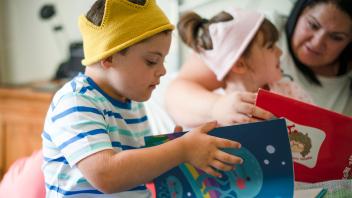Ever been amazed by a magic trick? I know I have. After the pure joy of letting the magic wash over me, I often wanted to know how it was done. Sometimes learning how the magic trick worked made me feel like I’d been cheated. Sometimes my appreciation of the magician’s skill increased, making me feel like I was in on a secret. Reading is a lot like magic. Sometimes knowing how a piece of literature works enhances appreciation of what’s being read – whether the literature of fact or of fiction. However, more and more often readers aren’t able to see the magic; they can only seek and see “evidence.” There’s a real danger of killing the magic, the joy, the simple pleasure of reading by dissecting it to the point of extinction. Recently, I talked to a 5th grade child about her favorite books. She told me she USED to like an award-winning book (unnamed here purposely) but since they “studied it” in class, well, the magic was gone. Why? The unseen power of a book on a reader is being supplanted by something that can be seen, cited or otherwise made quantifiable. Reading can quiet fears, bolster confidence, inspire a career and much, much more. (Don’t believe me? Then take a look at some of the luminaries’ essays in Anita Silvey’s Everything I Need to Know I Learned from a Children’s Book (Roaring Brook).) A recent commentary helped put this into focus for me as more and more, readers are asked to support their opinion by citing “evidence” in a text. The author concludes that “Treating text as evidence may sharpen our understanding of what it says, but it also precludes us from using the text in personally relevant ways … If we want to prepare students for college and career, let’s teach them the full range of reading required of us in college and career. Let’s teach them to read for real and relevant purposes and also to return to the text to search for evidence when they must. Let’s teach them not only to use text as evidence to support claims, but also to let the text move, teach, frustrate, confuse, and compel them.” In other words, let’s encourage readers to respond to literature in myriad and personal ways – to experience literature, first and foremost. Let’s help kids continue to find the magic in books!
About the Author
Reading Rockets’ children’s literature expert, Maria Salvadore, brings you into her world as she explores the best ways to use kids’ books both inside — and outside — of the classroom.

